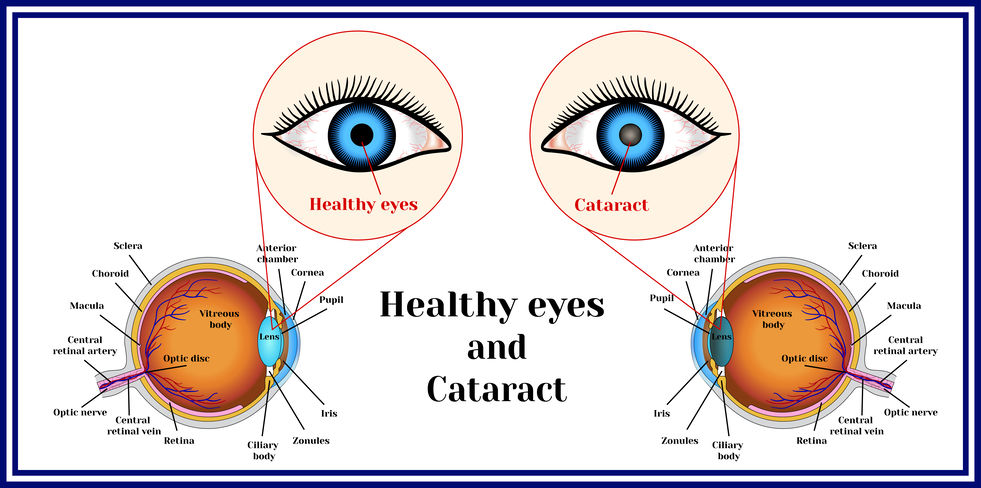Cataracts are the most common cause of blindness
A cataract is a clouding of the lens in your eye that, sadly, is an inevitable consequence of getting older. If your vision is a bit cloudy when you’re watching television, your eyes are sensitive to light and glare, colours are a bit odd, or oncoming headlights have a “halo” around them, it is possible you have cataracts on your eyes.
Cataracts cause a progressive, painless loss of vision and are the leading cause of blindness worldwide.
- 5,000 out of 100,000 people aged 52–62 are affected by cataracts.
- 46% of people aged 75–85 have significant vision loss due to cataracts.
Some people with cataracts describe life as being similar to looking through a window hazed and streaked with dirt.
Cataracts and your eye

Treatment for cataracts
Surgery is the only remedy for cataracts, and is more than 95 per cent successful in restoring vision.
Cataract surgery involves replacing the eyes’ natural lenses with new clear intraocular lenses (IOLs).
If you opt for standard surgery, it’s likely you will need reading glasses and possibly computer glasses or other special-purpose glasses after cataract surgery.
But there also are options that can reduce or even eliminate the need for glasses. Theses could be the combination of laser cataract surgery and premium implantable lenses, such as multifocal IOLs or accommodating IOLs. Another option is monovision cataract surgery where the single vision IOL is customised for each eye.
Glasses post-surgery
Basically, depending on the strength of artificial lens selected to suit your eye, you will need to change the glasses you wear after your operation.
If you normally wear strong short-sighted or long-sighted lenses, we can dramatically reduce the strength of prescription glasses you will need after cataract surgery.
Come and see us after your operation and we will give you a thorough eye check to ensure every thing is fine with your new artificial lenses. We will also check your prescription to try and improve your vision even further.
Post-surgery issues?
Sometimes after cataract surgery, you may find that things start to look cloudy again. This can happen because a lens capsule — the part of your eye that holds your new artificial lens in place — begins to thicken up. The problem may not show up right away; you may notice it months or years later. We can help with that.
We will check your vision and if necessary, we will recommend what’s known as YAG to fix it. We will refer you back to your ophthalmologist and they will use a laser to open up the thickening around the lens capsule to let more light get through your artificial lens. That will clear up your cloudy vision.
What are cataracts? Worried? See our Auckland optometrists!
If you find yourself frequently needing stronger glasses or contacts, you may have cataracts. See our Auckland optometrists if your eyesight is rapidly changing.
Your symptoms could also be a sign of another eye-related problem, so seeing one of our optometrists if you are experiencing any changes in your vision is always a good idea.
To get all your questions answers call 09 522 1283 to speak to our Newmarket optometrists. To speak to an optometrist in Henderson call 09 836 1731.

